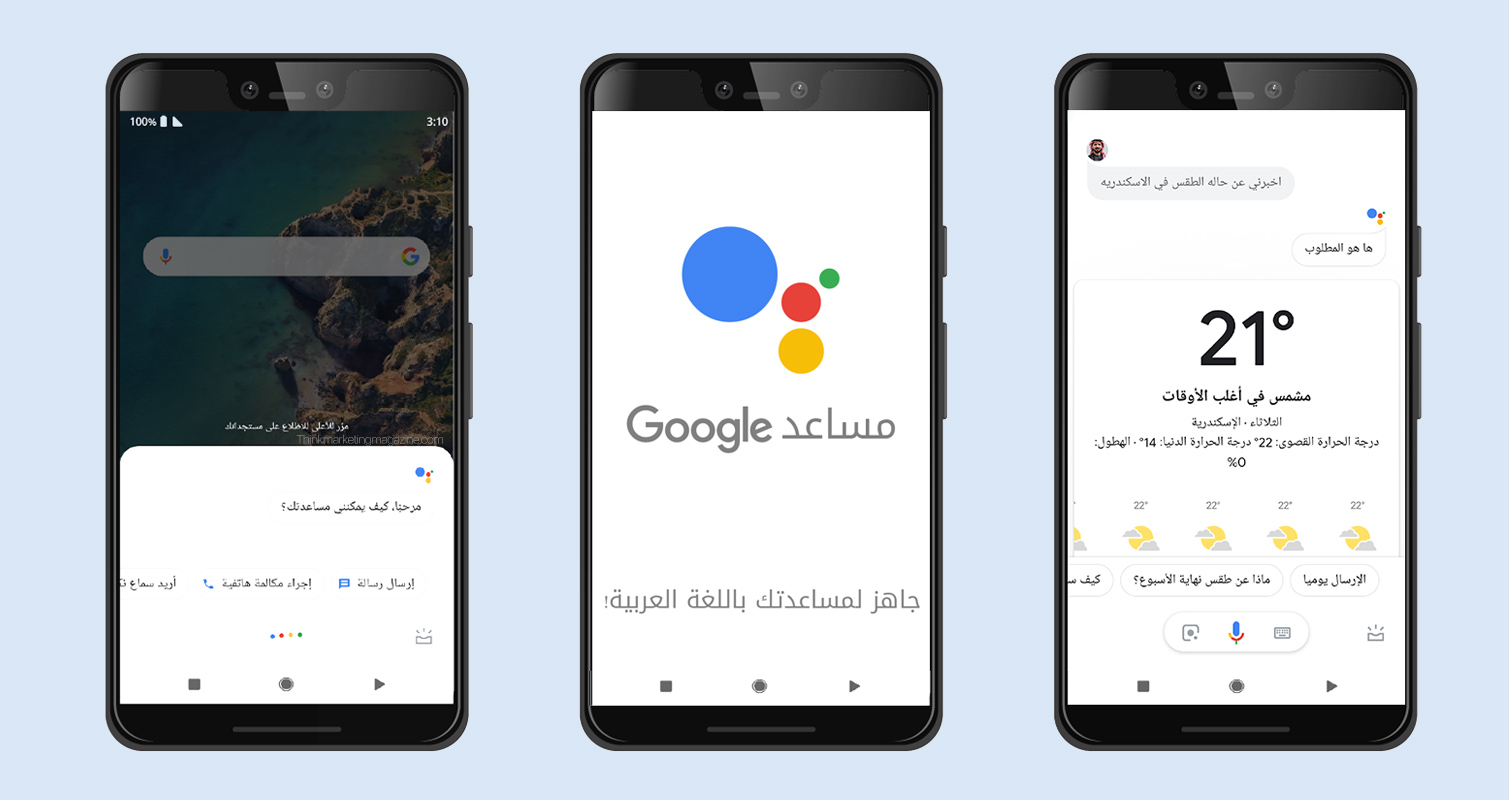Localization and keeping cultural identities in mind is a topic we are looking forward to during Ramadan’s Ad superbowl. It seems that global internet company Google is on the same mindset. Recently, Google announced that their mobile virtual assistant has just gotten a localized update.
According to a press release, the assistant “can [now] understand the Egyptian dialect and answer in standard Arabic. The Assistant will also be available in Saudi Arabia where people will also be able to converse with it using the Saudi dialect.”
“The Google Assistant brings together all of the technology and smarts we’ve been building for years. With the Google Assistant, you can talk or text with Google in a natural way, helping you get more done in your everyday life. This is the latest in a series of features we launched for our Arabic-speaking users and the Assistant will only get better with time as it learns with the help of machine learning,” said Tarek Abdalla, Head of Marketing at Google Middle East and North Africa.
“The Assistant will be able to answer fun questions like “do you love me” or “make me coffee” drawing from iconic cultural moments such as plays (إنتِ بتذاكري من ورانا؟ ), viral videos (استطعنا بس ما استطعنا), and even ancient Arabic poetry (هل تحبّيني؟). It will be able to tell you jokes, sing you songs, and even answer existential questions like “who am I” all with some smarts and a lot of humor,” continued the press release.
- Advertisement -
Google Assistant’s Arabic Upgrade
The new Arabic responses, and the usual English answers, were curated by highly-trained linguists and creative writers, and pronounced by a Text-to-Speech (TTS) system that has been developed using the most advanced technology.
“The Assistant relies on Google innovation in machine learning, natural language processing, as well as new solutions that help it work as seamlessly as possible. For example, when diacritics in the Arabic language added a layer of complexity to our work on the Arabic Assistant, we developed an engine within the product that enables it to recognize diacritics and pronounce them. We’re happy to be able to bring a product as helpful and useful as the Assistant to Egypt and it will only get better with time. This is just the beginning,” said Abdalla in an exclusive statement.
When preparing the new update, Google’s teams integrated several technologies that were never used before with the Arabic language, including the brand-new engine that helps the Assistant identify and speak different words. The new engine doesn’t just listen to the words and take it as it is, it will identify the meaning based on the user’s pronunciation, as many Arabic words’ meaning are derived from how it’s pronounced.
Users can now try statements such as Ok Google, غنّي لي حروف الأبجدية, Ok Google, إنتي خاينة, Ok Google, قولي لي سرًّا, Ok Google, إحكيلي نكتة, Ok Google, هل تحبّيني؟, Ok Google, ما الموسيقى المفضّلة لديكَ؟, Ok Google, افتح يا سمسم, Ok Google, عمرك كام سنة؟, and Ok Google, ما هو فيلمك المفضل؟.
“The Assistant is designed to be a helpful companion that combines the best of Google from Search and Maps, to YouTube and Google Calendar. And we are very excited that it can now understand Egyptian Arabic helping millions of Egyptians in their day to day life,” shared Abdalla.
This was not the only major update to the assistant that made major news. At last year’s Google I/O conference, Google Assistant piqued interest as it had a realistic and human sounding conversation with a local salon without the person knowing that she was talking to a computer.
Want to hear the conversation? Check out last year’s coverage > Google I/O 2018: Google’s AI is calling and you’ll never recognize it as a machine!
With only a few hours left before this year’s newest updates go live at Google I/O’s 2019 conference, it’s good to see that the updates aren’t only for a global audience but that they are keeping those in MENA in mind too.
Watch the conference live here, or follow our Instagram where we will be posting a short update on the most important features announced.








